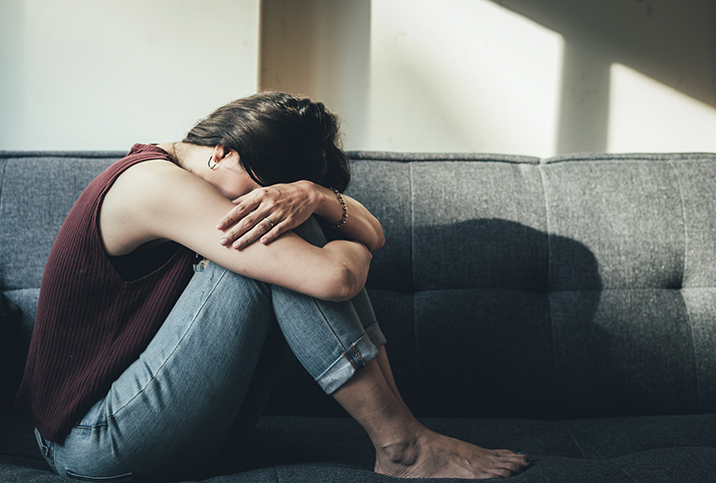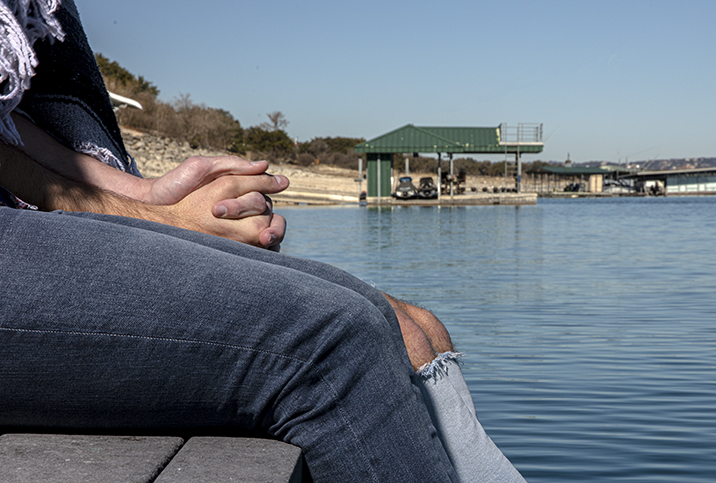Managing Anxiety for PTSD Relief

Strategies to manage PTSD vary, from therapies to lifestyle changes to self-soothing practices.
The link between post-traumatic stress disorder and anxiety means it's difficult to manage one without addressing the other. However, working on anxiety issues may well help in the process of PTSD recovery.
PTSD can affect anyone
Post-traumatic stress disorder affects people from all walks of life: veterans of military service, violence and sexual assault survivors, and people who have experienced or witnessed accidents, natural disasters and other traumatizing events. In total, 1 in 11 Americans experience PTSD in their lifetime. Odds are, you know someone who has struggled, or is struggling, with the disorder.
Post-traumatic stress disorder consists of persistent negative thoughts and dreams about a traumatic event, resulting in distress, fear, anger and an increased risk of other mental health disorders. Sufferers may begin to withdraw from friends and loved ones and opt out of social interaction. Notably, they can have persistent, difficult-to-shake feelings of foreboding, apprehension and nervousness; in short, anxiety.
Of course, a PTSD diagnosis is complicated, especially because the circumstances that brought about the condition are always different in each case.
The impact of anxiety on PTSD
Anxiety is a product of PTSD, but can also increase the severity of the disorder. For this reason, people experiencing post-traumatic stress disorder may have trouble feeling comfortable in a number of scenarios that trigger their anxiety.
When post-traumatic stress disorder is coupled with persistent anxiety, an individual has a much more difficult time managing their condition. These mental health issues create a cyclical experience: PTSD increases the risk for anxiety, depression and/or substance abuse, all of which may have a worsening impact on the individual's PTSD.
Reducing anxiety offers an opportunity to quiet the mind and better cope with other PTSD symptoms. The sufferer may still struggle with flashbacks, but if the constant sense of unease is tamped down, they're more likely to move toward a normal routine and enjoy what used to make them happy. Because of this, post-traumatic stress disorder treatments and recovery regimens include mindfulness-based therapies and other methods for reducing anxiety and promoting a focus on the present. Indeed, many coping strategies for PTSD don't target the source of the original trauma, they aim to reduce the anxiety to help an individual overcome the trauma and find calm.
Tips for managing anxiety
Anxiety relief can be found in countless practices, starting with simply spending time with friends and enjoying the outdoors. Get plenty of rest and make time for exercise—aerobic exercise has been linked to decreased tension, elevated mood and improved sleep and self-esteem. Meditation, deep breathing, yoga, tai chi and qigong are all recommended as well.
Vital practices include fact-checking, thought labeling and reframing, and psychotherapy, including cognitive behavioral therapy (CBT). There are also medications that can help as well as alternative remedies: acupuncture, massage and muscle relaxation, aromatherapy, biofeedback, self-hypnosis and music therapy.
What you eat even plays a significant role, so it's always a good choice to maintain a balanced diet high in whole foods such as vegetables, whole grains, fruits, nuts and probiotics, and stay clear of the simple carbohydrates in processed food products. Certain foods, vitamins and supplements, such as chamomile tea, magnesium, zinc, omega-3 fatty acids, antioxidants and B vitamins, support a calm mind and increase the "feel good" neurotransmitters serotonin and dopamine.
Stay hydrated throughout the day. Refraining from smoking, drinking and drug use, and minimizing caffeine intake are crucial strategies to calm yourself. Even posture can help: Stand up straight and confident, ready to take on the day, telling your brain you're in control.
Always inform your doctor before starting any new diet or exercise regimen or adding new supplements to your current medication.
Other benefits of reduced anxiety
Overcoming anxiety alone will not eliminate post-traumatic stress disorder—anxiety itself is a symptom of PTSD—but it's a critical step in recovery and can have a positive impact on relationships and work life, self-confidence and physical health.
By worrying less about the past and future, reducing anxiety promotes living in the now and enjoying life.


















